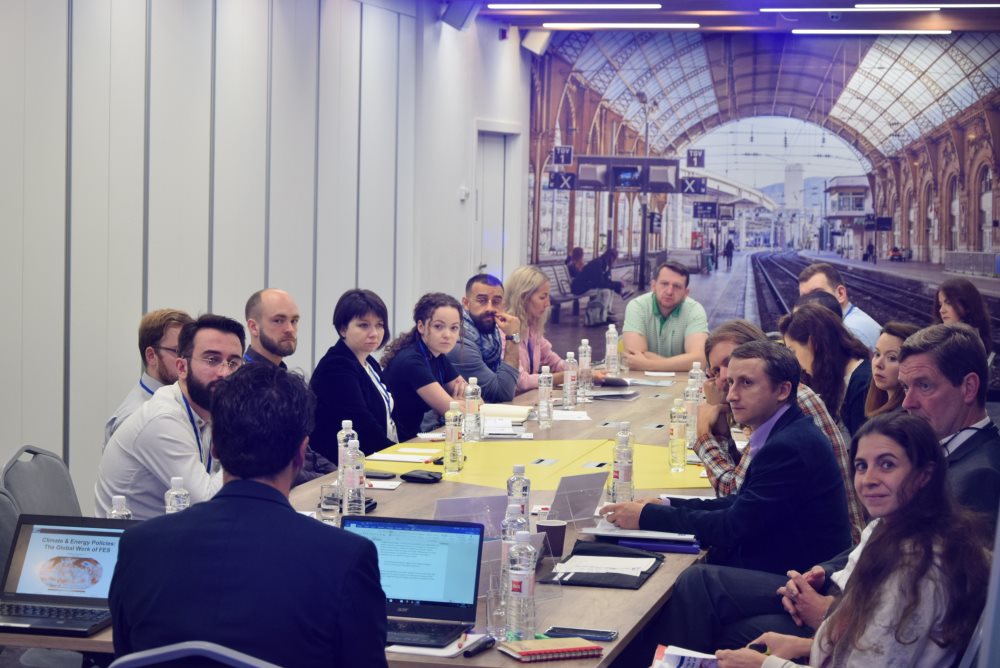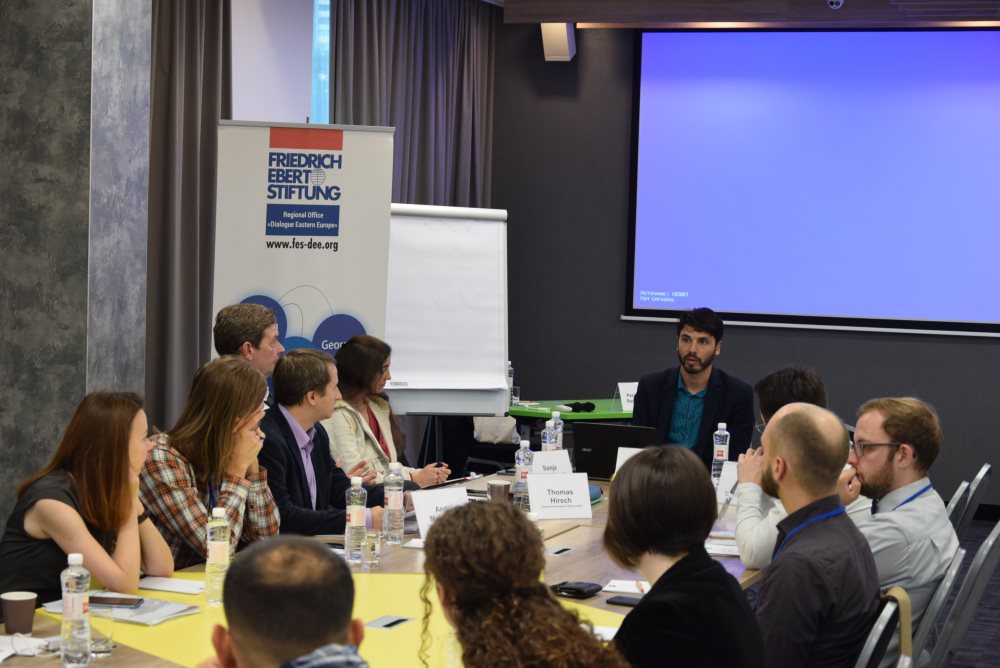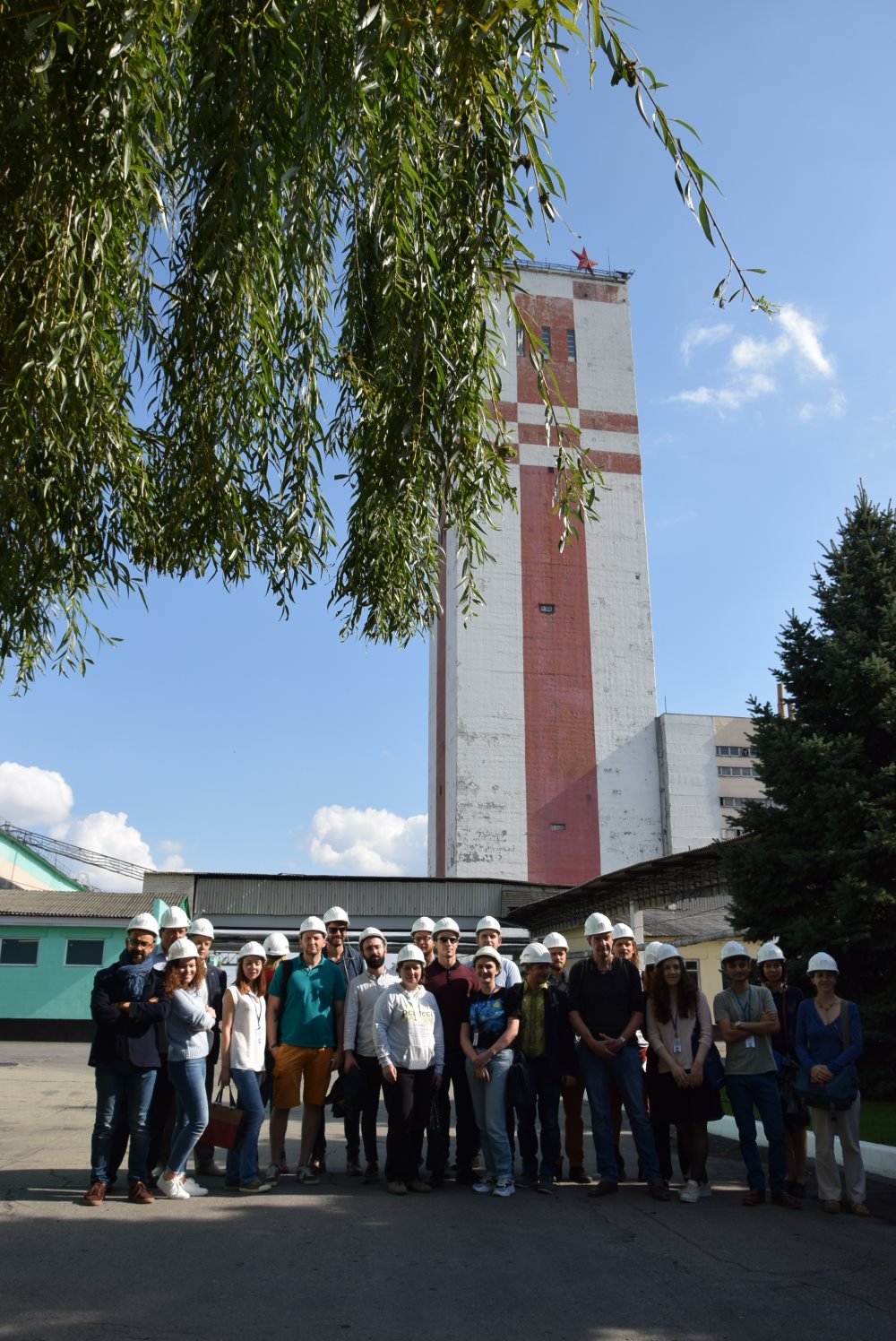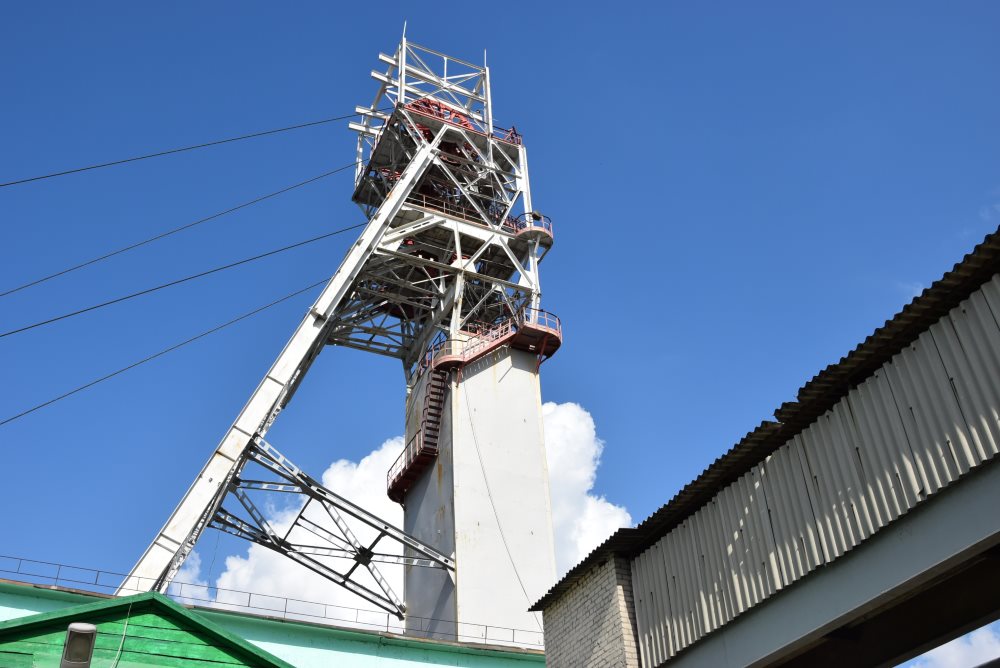Fifth Eastern European Regional Academy for Social Democracy
The Fifth Eastern European Regional Academy for Social Democracy on the issue “Just Transition: Towards a Social & and Fair Energy and Climate Policy” was hold on Monday 10th-14th September, in Kyiv and Dnipro. The first day focused on experts and stakeholders reports about the latest global and regional trends in Climate and Energy Policy. In her introductory presentation Sonja Schirmbeck (Friedrich-Ebert-Stiftung) addressed why the topic is relevant from a social-democratic perspective and what a transition to renewable energies implies for trade unions. Thomas Hirsch (Climate & Development Advice) discussed the long term goals within the Paris Agreement (PA), the positioning of key actors and related challenges in PA implementation on national level. Afterwards Svitlana Romanko (350.org) and Iryna Stavchuk (Climate Action Network in Eastern Europe, Caucasus and Central Asia) shifted the focus on the regional level. The first mentioned stressed the difficulties of a weak civil society, low level of participation on city level and the problematic dominance of centralized top-down structures in EaP-countries for a successful “Just Transition”. That’s why, according Iryna Stavchuk, international cooperation in frameworks like EU-Association is needed as positive trigger for energy transformation in that region. Georgy Safonov (Higher School of Economics Moscow) set energy and climate policy perspectives in Russia on the agenda. By doing so it became clear that the huge potential of renewables in Russia faces the obstacles of a weak lobby and a non-sustainable setting of policies and incentives. As implication it is hard to compete with the fossil businesses.
A key part of the 5th Academy were meetings and discussions with Ukrainian officials Serhiy Taruta (Chairman of German-Ukrainian Parliamentary Group of Verkhovna Rada), Alex Ryabchyn (Deputy Head of the Committee on Fuel and Energy Complex, Nuclear Policy and Nuclear Safety), Sergey Kaplin (Deputy Head of the Committee on Social Policy) and Georgy Tuka (Deputy Minister of the Ministry of Temporarily Occupied Territories and IDPs). All stakeholders openly discussed the potential of renewables and their view on the future of the coal industry in Ukraine. Also invited were Grzegorz Trefon (The KADRA Trade Union of Miners Poland) and Nataliya Levytska (Confederation of Free Trade Unions of Ukraine and the Independent Trade Union of Miners of Ukraine) from Poland and Ukraine. Both trade unionists sensitized the participants to the necessity of including workers from the coal region in the transformation process. Finally, Anna Ackermann (Ecoaction) and Martin Schön-Chanishvili (Germanwatch) were given the opportunity to discuss the challenges of forming a public awareness regarding the theme climate change and its consequences. In Dnipro the thematic part of the event was completed with presentations by Pavlo Lysjansky (Human rights activist from Donbas) on the situation of workers in occupied territories and Kostyantyn Krynytskyi (Project coordinator of Ecoaction) on the closure of coal mines in Ukraine.
The applied part of the academy was kicked off in Dnipro on Wednesday. Еhe participants visited a Coal Factory in Pavlograd. During this field trip participants exchanged views with local trade union members on local possibilities of a "Just Transition" and the decreasing significance of coal industry.
On Thursday and Friday, the Academy's participants switched the perspective by putting oneself in the shoes of the US, EU, China, India, Brazil, Bolivia, Bangladesh, Burkina Faso and simulated a climate negotiation at the UN level. As a result of intensive two day negotiations and discussions, participants agreed finally on a common climate treaty.
Participant’s feedback: “It has been a deep pleasure for me to participate to this session of the Academy and gain so many knowledge´s and experience. The program was planned at very professional level and I appreciate all your efforts you put in making this week so special and, at the same time, so informative for all of us. These days were not only an opportunity for me to get informed about the energy security topic, but also a chance to make so many new friends, for which I am very thankful to you.”
Friedrich-Ebert-Stiftung
Dialogue Eastern Europe
04070 Kyiv, Ukraine
Borysohlibska 15A
38 (044) 234 1038
Публикации
Andrusevič, Andrej; Andrusevič, Natalija; Miščuk, Zorjana
Ozelenenie vostočnogo partnerstva: Regional'noe izmerenie buduščich perspektiv
Kyiv, 2022
Download publication (11 MB, PDF-File)
Andrusevych, Andriy; Andrusevych, Nataliya; Mishchuk, Zoriana
Greening the Eastern partnership: Regional dimension of the future perspectives
Kyiv, 2022
Download publication (11 MB, PDF-File)








